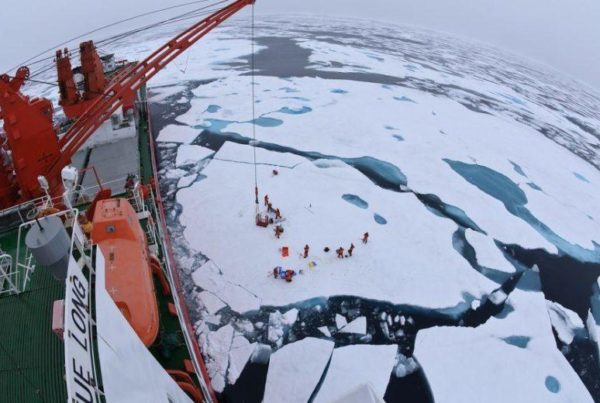By Gerald Wright (Originally published April 28, 2016 on Open Canada. Re-printed with permission.)
A $15 billion arms deal with Saudi Arabia is giving the Trudeau government’s foreign policy its first trial by fire. Another test, less traumatic on the surface but every bit as important, is looming.
Soon an international arbitral tribunal set up by the Permanent Court of Arbitration in The Hague is expected to rule on a suit brought by the Philippines that challenges China’s claim to most of the South China Sea. The claim, supposedly hallowed by 2,000 years of history, overlaps the exclusive economic zones claimed by Brunei, Indonesia, Malaysia, the Philippines and Vietnam.
The Philippines’ argument is expected to prevail. China has denied the jurisdiction of the tribunal but has been hard at work strengthening its de facto control of the Sea by turning reefs into artificial islands and loading them with infrastructure. In response, the United States has been undertaking “freedom of navigation” naval patrols close to some of the disputed features, acquiring basing rights and, along with Japan, improving the military and coast guard capabilities of countries affected by China’s claim.
What should Canada do if China simply ignores the ruling? Some will argue that we have too much to lose by needlessly provoking an extraordinarily sensitive Chinese dragon. At first glance the dispute does not appear to affect our commercial interests. China has been very canny by promising that the $5 trillion in trade that annually passes through the Sea will not be impeded by its island-building binge or its sovereignty claim. The Canadian navy is in such feeble condition that a long-term military contribution to the Western Pacific would appear out of the question. In any case, are we and our allies seriously going to risk a major conflict over tiny outposts that could be neutralized at a moment’s notice by American forces?
Yet there is a vital Canadian interest at stake here. If China disregards the decision of the tribunal and maintains its claim, it will be thumbing its nose at the 1982 Convention on the Law of the Sea, which China signed and ratified. The Convention, which prescribes who can fish or drill for oil and where, and guarantees freedom of navigation and overflight, is a significant part of the international regime of rules, which we have been painstakingly trying to construct since 1945. China has availed itself of those rules when it suited its purpose, notably by adhering to the World Trade Organization, an example of what former Canadian ambassador to China David Mulroney calls Beijing’s “cafeteria-style approach to the rules.”
Canada, a middle power, depends on the rules regime to help defend its interests. The 1982 Convention, for example, has been used to strengthen Canada’s control over activities off its three coasts and now structures our claim to mineral resources in the Arctic Ocean seabed, where the continental shelf extends beyond our exclusive economic zone. Now that we know that China is at least interested in the possibility of commercial shipping in the North, do we not have all the more reason to ensure that the legal regime is in robust shape?
China is playing for the long haul, calculating that exercising de facto control while permitting free passage through the Sea will eventually wear down resistance. Outsiders are warned to employ discretion, as was New Zealand Prime Minister John Key on his recent visit to China. New Zealand, though it may temper its comments, is nonetheless likely to call for the Tribunal’s ruling to be respected. Not all the members of the Association of Southeast Asian Nations, however, can be expected to stand shoulder to shoulder with the Philippines. Fearing their giant neighbour and not wanting to risk trade and investment relations with it, many Southeast Asian political leaders will acquiesce in the Chinese view that disputes should be settled bilaterally, through consultation and negotiation, rather than arbitration.
Canada should strive to make the preservation of the rules regime a multilateral project, not one that is left up to the United States, which has not ratified the Law of the Sea Convention. There could well, for example, be a role for Canada in bolstering the resolve of European countries, whose attention is currently focused on Islamic State terrorism and Syrian refugees. In fact, this is a good opportunity to refute the idea that the international order is nothing but an American contrivance.
The situation calls for patient, relentless diplomacy, confronting China with the necessity of complying with the Tribunal’s decision and recognizing that other countries have rights in the Sea too. The G-7 foreign ministers’ recent communiqué, emphasizing that maritime disputes should be settled through “internationally recognized legal dispute settlement mechanisms, including arbitration,” is a start. If we are serious about respect for rules, and the part that rules play in making international life civilized and tolerable, this is a duty we should not shirk.
Gerald Wright is a Senior Fellow, at the Norman Paterson School of International Affairs at Carleton University.








